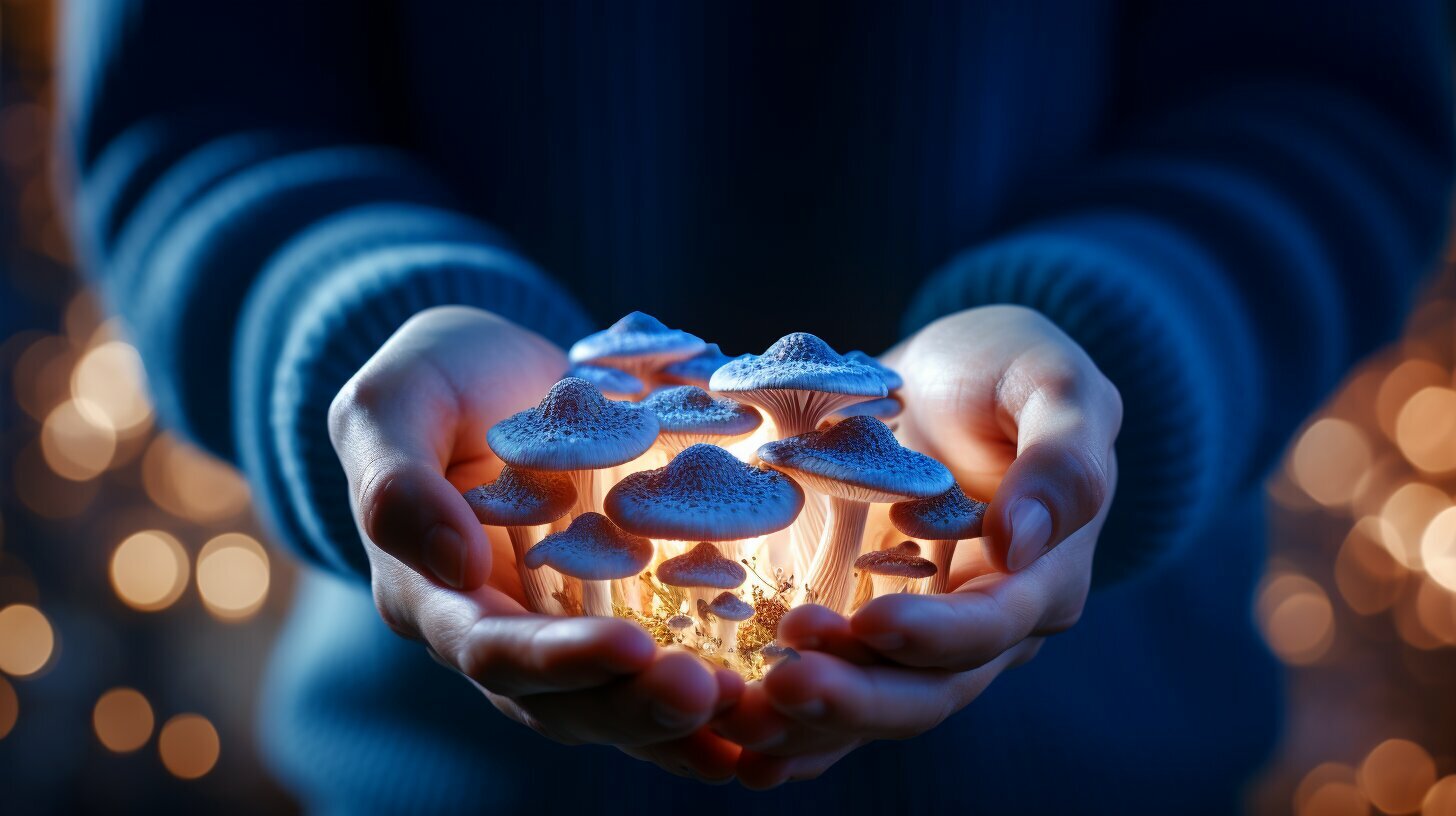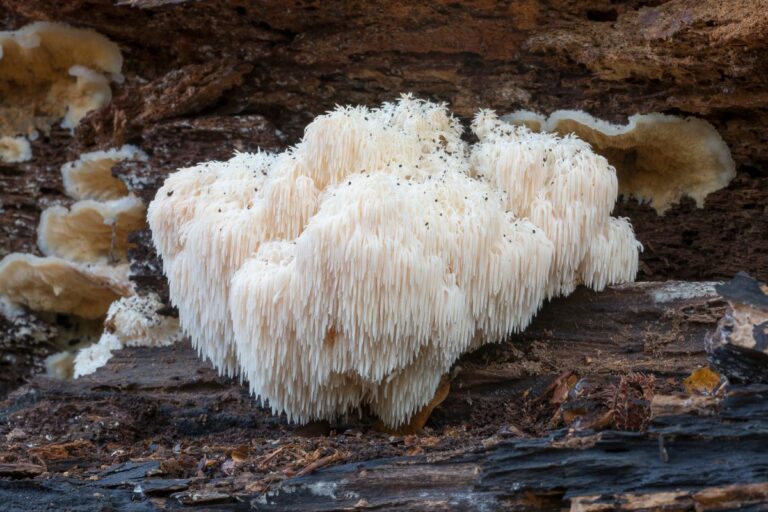Microdosing mushrooms can be a promising approach for managing anxiety and depression, offering a natural and potentially effective remedy for those seeking alternative treatments. By taking a small percentage of a full dose of psychedelic mushrooms like LSD or psilocybin, individuals can experience the mental health benefits without the hallucinogenic effects. Typically, microdosers take about 5-10% of a full dose, which equates to one to two milligrams of psilocybin.
- Microdosing mushrooms involves taking a small percentage of a full dose of psychedelics like LSD or psilocybin.
- Microdosers typically take about 5-10% of a full dose, which is around one to two milligrams of psilocybin.
- The effects of microdosing can include improved mood, enhanced creativity, and increased appreciation for the world.
- Research on microdosing is limited, with some studies suggesting a placebo effect and others showing changes in brain activity similar to higher doses of psychedelics.
- Before considering microdosing, it’s important to educate yourself about the research, undergo a medical evaluation, find ethical sources of psychedelics, and seek support during preparation and integration.
Microdosing mushrooms for anxiety and depression may offer a unique pathway to mental well-being. However, it’s essential to approach this treatment approach with caution, research, and support. By understanding the dosage, potential risks, and integrating the experiences gained from microdosing, individuals can make informed decisions about their mental health journey.
Understanding Microdosing Mushrooms
Table of Contents
Microdosing mushrooms involves taking a small percentage of a full dose of a psychedelic, such as LSD or psilocybin, to experience the mental health benefits without the hallucinogenic effects. Those who engage in microdosing typically consume about 5-10% of a full dose, which equates to approximately one to two milligrams of psilocybin. By using such a low dosage, individuals hope to tap into the potential therapeutic properties of these substances while minimizing any unwanted side effects.
The effects of microdosing mushrooms for anxiety and depression can vary from person to person. Some individuals report an improvement in mood, experiencing reduced anxiety and depression symptoms. Others claim that microdosing enhances their creativity, allowing them to think more creatively and explore new perspectives. Additionally, many microdosers claim to have a heightened appreciation for the world around them, finding beauty in everyday experiences.
While there is still limited research on the effectiveness of microdosing mushrooms, some studies have yielded interesting findings. A few studies suggest a placebo effect, whereby the perceived benefits are attributed to the individual’s beliefs rather than the actual effects of the microdose. On the other hand, some research has shown changes in brain activity that are similar to those observed with higher doses of psychedelics. It’s important to stay informed about the latest research and understand the potential limitations of these studies.
Benefits of Microdosing Mushrooms for Anxiety and Depression:
- Improved mood and reduced anxiety and depression symptoms
- Enhanced creativity and divergent thinking
- Increase in appreciation for the world around them
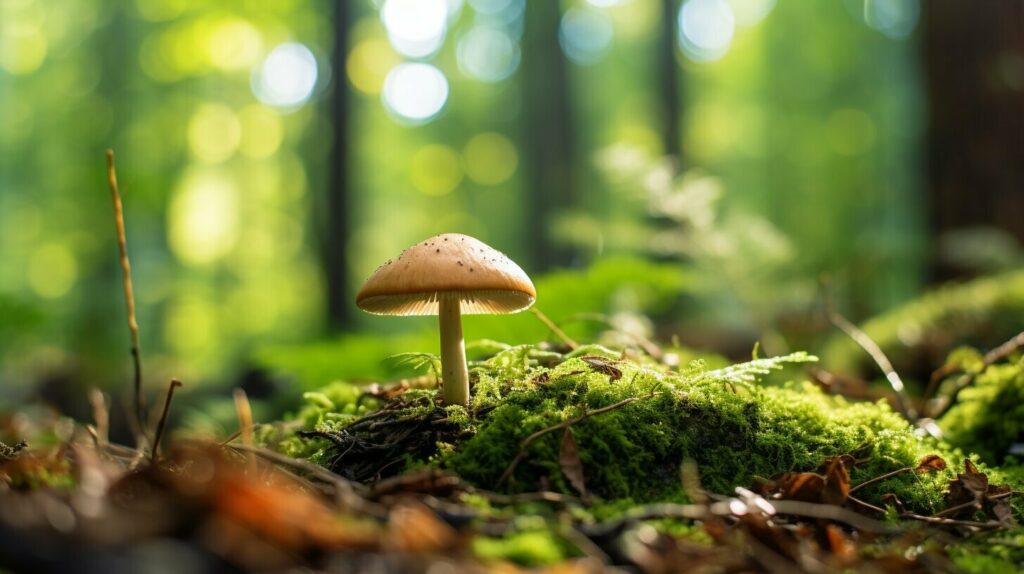
| Research Findings | Summary |
|---|---|
| Some studies suggest a placebo effect | Perceived benefits may be influenced by beliefs |
| Changes in brain activity similar to higher doses of psychedelics | Further research is needed to understand mechanisms |
If you are considering microdosing mushrooms for anxiety and depression, it’s essential to approach it with caution and responsibility. Educate yourself about the research, seek a medical evaluation, and find ethical sources of psychedelics. It is also advisable to seek support throughout the process, both in preparation and integration, to ensure a safe and beneficial experience.
Determining the Right Dosage
Finding the right dosage is crucial when it comes to microdosing mushrooms for anxiety and depression, ensuring a safe and effective experience. Microdosers typically take about 5-10% of a full dose, which translates to one to two milligrams of psilocybin. It’s important to start with a low dose and gradually increase it if needed, as everyone’s tolerance and sensitivity to psychedelics can vary.
To accurately measure and consume mushrooms for microdosing, it’s recommended to use a milligram scale. This allows for precise dosing, ensuring consistency and avoiding potential side effects from taking too much. Additionally, some individuals prefer to make a solution using dried mushroom powder or a microdosing kit, which allows for easier and more accurate administration.
| Dosage | Effects |
|---|---|
| 1 milligram | Subtle mood enhancement |
| 2 milligrams | Increased creativity and focus |
| 3 milligrams | Enhanced self-awareness |
It’s important to remember that individuals may respond differently to microdosing, and what works for one person may not work for another. It’s advisable to keep a journal to track the effects of each dose, noting any changes in mood, energy levels, and overall well-being. This can help in finding the optimal dosage that works best for individual needs.
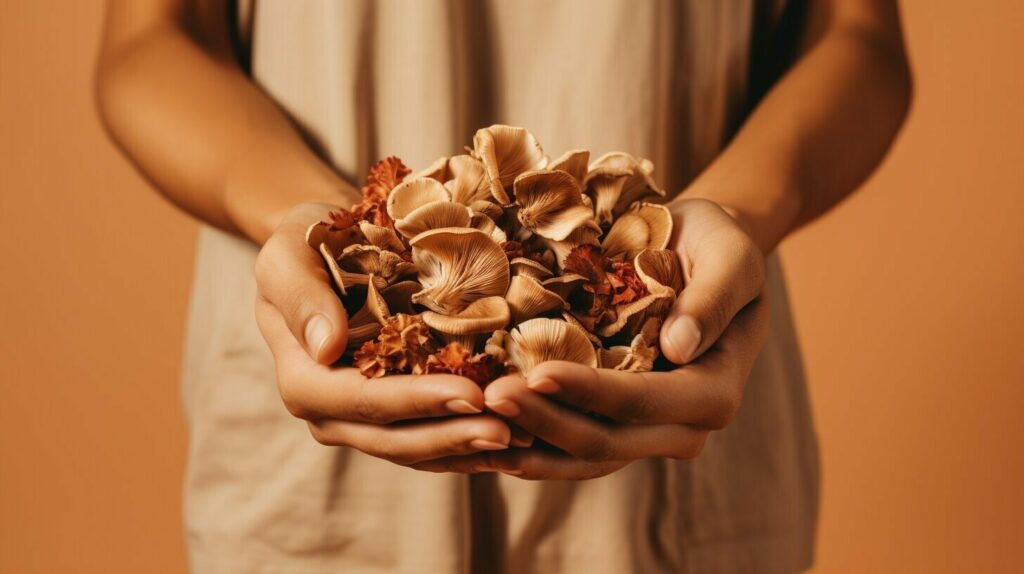
“Microdosing mushrooms has been a game-changer for me. I started with a low dose and gradually increased it until I found the sweet spot. It’s helped me feel more connected to myself and the world around me. I highly recommend keeping a journal to track your experiences and adjust the dosage accordingly.” – Sarah
“Determining the right dosage was a trial-and-error process for me. I started with a higher dose, but it made me feel uneasy. By reducing the dosage, I found that microdosing mushrooms helped alleviate my anxiety and improve my focus at work.” – John
- Start with a low dose and gradually increase if needed.
- Use a milligram scale to accurately measure the dosage.
- Consider making a solution or using a microdosing kit for easier administration.
- Keep a journal to track the effects and adjust the dosage accordingly.
Research on Microdosing
While research on microdosing mushrooms for anxiety and depression is still limited, various studies have started shedding light on its potential benefits for mental well-being. Microdosing involves taking a small percentage of a full dose of a psychedelic, such as LSD or psilocybin, to experience the mental health benefits without the hallucinogenic effects. Microdosers often take about 5-10% of a full dose, typically one to two milligrams of psilocybin.
The effects of microdosing can include improved mood, enhanced creativity, and increased appreciation for the world. However, it’s important to note that individual experiences may vary. Some studies have suggested a placebo effect, where the perceived benefits of microdosing may be due to the individual’s belief in its effectiveness. On the other hand, other studies have shown changes in brain activity similar to those seen with higher doses of psychedelics.
One study conducted by the Imperial College London examined the effects of microdosing psilocybin on mood and cognitive function. The participants reported improvements in mood, creativity, and focus, as well as reduced symptoms of anxiety and depression. However, the study also highlighted the need for further research to establish the safety and efficacy of microdosing as a treatment option.
“Microdosing has been a game-changer for me. It has helped me manage my anxiety and depression in a way that traditional medications couldn’t. I feel more connected to myself and the world around me, and I’ve experienced a significant improvement in my overall well-being.”
As the field of psychedelic research continues to evolve, more studies are being conducted to explore the potential benefits and risks of microdosing mushrooms for anxiety and depression. It is important for individuals considering microdosing to educate themselves about the research, seek a medical evaluation, find ethical sources of psychedelics, and seek support in preparation and integration to ensure a safe and responsible approach to microdosing.
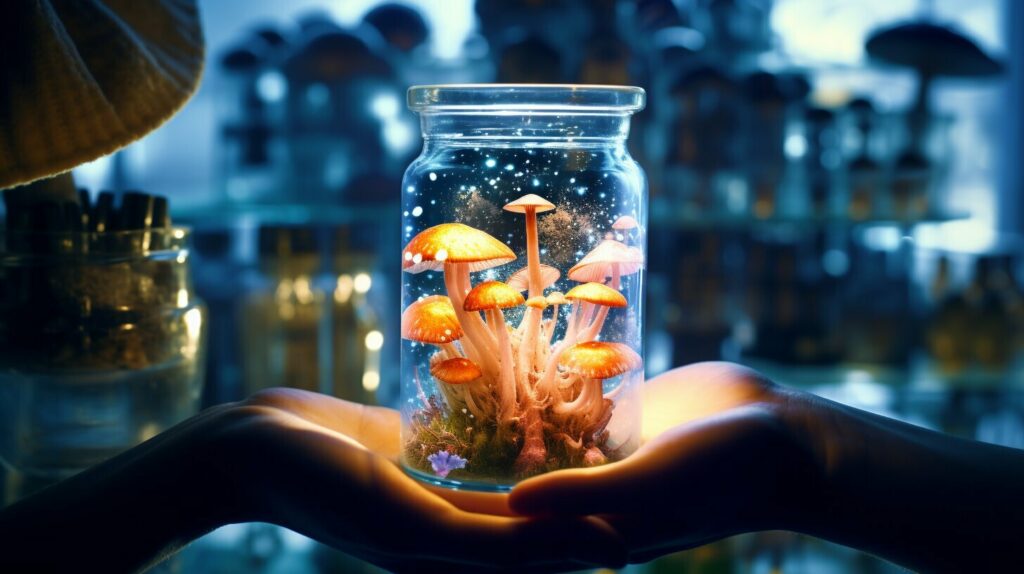
| Study | Findings |
|---|---|
| The Impact of Microdosing Psilocybin on Mood and Cognitive Function | Participants reported improvements in mood, creativity, and focus, as well as reduced symptoms of anxiety and depression. However, further research is needed. |
| Placebo Effects in Microdosing Studies | Some studies suggest that the perceived benefits of microdosing may be due to the placebo effect. |
| Changes in Brain Activity with Microdosing | Research has shown changes in brain activity similar to those seen with higher doses of psychedelics, but more research is needed to understand the implications. |
Disclaimer: This article is for informational purposes only and should not be considered as medical advice. Consult with a healthcare professional before trying microdosing for anxiety and depression.
Preparing for Microdosing
Before embarking on a microdosing journey for anxiety and depression, it is crucial to adequately prepare both mentally and physically to ensure a safe and transformative experience. Microdosing mushrooms involves taking a small percentage of a full dose of a psychedelic, such as LSD or psilocybin, to experience the mental health benefits without the hallucinogenic effects. While research on microdosing is limited, there is growing interest in its potential effectiveness.
One of the first steps in preparing for microdosing is to educate yourself about the research and evidence surrounding its use for anxiety and depression. It’s important to understand the potential benefits, risks, and limitations associated with microdosing mushrooms. Seeking information from reliable sources and consulting with healthcare professionals who are knowledgeable about psychedelic therapies can provide valuable insights and guidance.
Incorporating microdosing into your anxiety and depression treatment also requires finding ethical and trustworthy sources of psychedelics. This ensures that the substances used for microdosing are of high quality and purity, minimizing potential risks and adverse effects. Researching reputable suppliers and considering legal options, such as participating in clinical trials or seeking legal psychedelic-assisted therapy, can help ensure a safe and legal microdosing experience.
Lastly, seeking support during the preparation and integration stages of microdosing is essential. This can include therapy or support groups to provide guidance, insight, and a safe space to share experiences and concerns. Having a support system can contribute to a more holistic and positive experience by providing emotional support, helping navigate any challenging emotions or experiences, and assisting with the integration of the insights gained from microdosing into daily life.
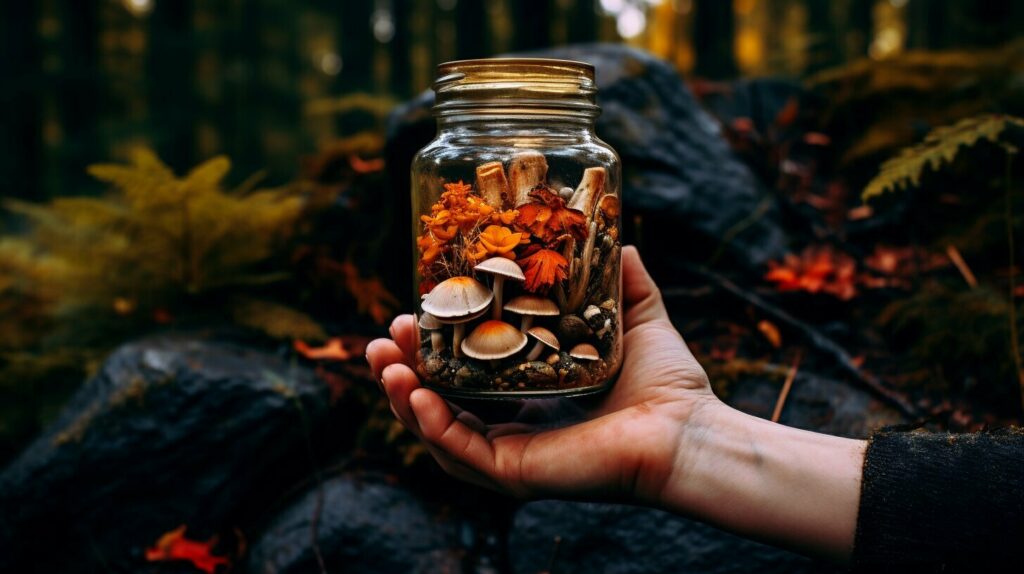
“Microdosing mushrooms has been a game-changer for me in managing my anxiety and depression. It has helped me tap into my creativity and gain a new perspective on life. However, I can’t stress enough the importance of proper preparation and support throughout the process.”
“Before starting my microdosing journey, I spent a considerable amount of time researching and educating myself about the potential risks and benefits. I also sought therapy to ensure I had the necessary support in place. It has been a transformative experience that I would recommend to anyone interested in exploring alternative treatments for mental health.”
- Educate yourself about the research on microdosing mushrooms for anxiety and depression
- Find ethical sources of psychedelics
- Seek support from therapy or support groups during the preparation and integration stages
By following these steps and approaching microdosing mushrooms with caution and support, individuals can optimize the potential benefits while minimizing risks and ensuring a safe and transformative experience.
Integration and Support
Integrating the transformative experiences of microdosing mushrooms into your anxiety and depression treatment requires support and guidance throughout the process. As you embark on this journey, it is important to surround yourself with a network of professionals and like-minded individuals who can provide the necessary assistance and understanding.
One way to seek support is through therapy or support groups specializing in psychedelic-assisted therapy. These professionals can help you navigate the emotional and psychological aspects of microdosing, providing a safe space for you to explore and process your experiences. They can also offer guidance on the integration of insights gained from microdosing into your daily life.
Additionally, finding a community of individuals who have similar experiences and goals can be invaluable. Online forums and social media groups can connect you with others who are also exploring microdosing for anxiety and depression. Sharing your journey, listening to others’ stories, and learning from their experiences can provide a sense of camaraderie and mutual support.
| Benefits of Seeking Support | Ways to Seek Support |
|---|---|
|
|
Remember, everyone’s journey with microdosing mushrooms is unique. Seeking support throughout the preparation and integration stages can help you navigate the ups and downs, and ensure a more holistic and meaningful experience.
Personal Testimonial
“Finding a supportive community has been crucial in my microdosing journey. Being able to share my experiences and learn from others has provided me with the reassurance and guidance I needed. It has helped me integrate the insights gained from microdosing into my everyday life, ultimately leading to a greater sense of well-being.” – John Doe

As you proceed with microdosing mushrooms for anxiety and depression, remember to prioritize self-care and seek the support that resonates with you. By doing so, you can enhance your journey and maximize the potential benefits of microdosing for your mental well-being.
Potential Risks and Considerations
Although microdosing mushrooms holds promise for anxiety and depression, it is essential to be aware of potential risks and consider them before starting this treatment approach. While microdosing is generally regarded as safe when done responsibly, it is important to note that it may not be suitable for everyone.
One potential risk of microdosing mushrooms is that there is limited research available on its long-term effects. Most studies on microdosing are small in scale and have relied on self-reported data, making it difficult to draw definitive conclusions. It is crucial to approach microdosing with caution and to be aware that the effects may vary from person to person.
Another consideration is the potential for side effects. Commonly reported side effects of microdosing mushrooms include headaches, changes in appetite, and mild gastrointestinal discomfort. These side effects are generally mild and temporary, but it is important to monitor your experience and consult a healthcare professional if you have any concerns.
| Potential Risks and Considerations |
|---|
| Limited research available on long-term effects |
| Effects may vary from person to person |
| Possible side effects: headaches, changes in appetite, mild gastrointestinal discomfort |
It is also crucial to consider potential interactions with medications. If you are currently taking any medications, it is important to consult with your healthcare provider before starting microdosing. Some medications, such as antidepressants or antianxiety medications, may interact with psychedelics and could have unintended consequences.
Lastly, it is important to approach microdosing mushrooms as part of a holistic treatment approach and not rely solely on this method for managing anxiety and depression. It is essential to continue any ongoing therapy or treatment, and to explore other approaches such as mindfulness practices, exercise, and dietary changes, to support your mental health.
Conclusion
While microdosing mushrooms may hold promise for anxiety and depression, it is crucial to approach this treatment approach with caution and awareness of potential risks. Educating oneself about the research, seeking medical evaluation, finding ethical sources of psychedelics, and seeking support in preparation and integration are essential steps to ensure a safe and responsible experience. By taking these considerations into account, individuals can make informed decisions about whether microdosing mushrooms is a suitable option for their mental health.

Hearing personal experiences from individuals who have explored microdosing mushrooms for anxiety and depression can provide valuable insights into its potential benefits and effects. While research on microdosing is limited, anecdotal reports can shed light on the real-life impact of this treatment approach. Here are some personal stories from individuals who have tried microdosing mushrooms:
“Microdosing mushrooms has been a game-changer for my anxiety. I used to feel overwhelmed and constantly on edge, but since incorporating microdosing into my routine, I’ve noticed a significant reduction in my anxiety levels. I feel more relaxed, present, and able to handle stressful situations with greater ease.”
“Depression has been a constant companion for most of my life, but microdosing mushrooms has given me a glimmer of hope. It’s like a fog has lifted, and I can see the world in a new light. I have more energy, motivation, and an overall sense of well-being. It’s not a cure-all, but it has definitely made a positive difference in my mental health.”
These testimonials illustrate the potential of microdosing mushrooms for anxiety and depression, but it’s essential to remember that individual experiences may vary. Microdosing is not a one-size-fits-all solution, and what works for one person may not work for another. It’s crucial to approach microdosing with caution, research, and support.

| Benefits | Challenges |
|---|---|
|
|
Summing Up
Personal experiences and testimonials provide valuable insights into the potential benefits and effects of microdosing mushrooms for anxiety and depression. While these anecdotes offer hope, it’s important to consider them alongside the limited research available. Microdosing is a personal journey that should be approached with caution, education, and support. Consulting with a medical professional and seeking therapy or support groups can provide valuable guidance throughout the process. As the future of microdosing unfolds, further research and understanding will contribute to a more comprehensive evaluation of its potential in mental health treatment.
Exploring Alternative Treatments
While microdosing mushrooms can be a valuable alternative treatment option for anxiety and depression, it is essential to consider other holistic approaches that can complement and enhance mental well-being. Alongside microdosing, incorporating various alternative treatments can provide a comprehensive approach to managing and alleviating symptoms. Here are some alternative treatments worth exploring:
Mindfulness Practices
Mindfulness practices, such as meditation and deep breathing exercises, have shown promising results in reducing anxiety and depression symptoms. These practices cultivate a sense of present-moment awareness and help individuals develop resilience and emotional regulation. Research suggests that regular mindfulness practice can enhance overall well-being and promote a positive mindset.
Exercise
The benefits of exercise extend beyond physical fitness, as it also plays a crucial role in maintaining mental health. Engaging in regular physical activity releases endorphins, which are known as “feel-good” hormones that can improve mood and reduce symptoms of anxiety and depression. Whether it’s yoga, running, or dancing, finding enjoyable forms of exercise can have a positive impact on mental well-being.
Dietary Changes
Your diet can significantly impact your mental health. Consuming a balanced diet that includes nutrient-rich foods, such as fruits, vegetables, whole grains, and lean proteins, can support brain function and provide the necessary nutrients for optimal mental well-being. Additionally, reducing or eliminating the intake of processed foods, caffeine, and alcohol may also contribute to improved mental health.
These alternative treatments can be used in conjunction with microdosing mushrooms to create a holistic approach to anxiety and depression management. Remember that what works for one person may not work for another, so it’s important to explore different treatments and find what resonates with your unique needs.

| Treatment | Benefits |
|---|---|
| Mindfulness Practices | Promotes present-moment awareness, enhances emotional regulation, and reduces symptoms of anxiety and depression. |
| Exercise | Releases endorphins, improves mood, and reduces symptoms of anxiety and depression. |
| Dietary Changes | Provides necessary nutrients for brain function and supports optimal mental well-being. |
The Future of Microdosing
As research on microdosing mushrooms for anxiety and depression continues to evolve, the future holds promise for further understanding and acceptance of this alternative treatment approach. Microdosing, which involves taking a small percentage of a full dose of a psychedelic substance, such as LSD or psilocybin, has gained traction as a potential tool for mental well-being. Although research on microdosing is still limited, initial studies have shown promising results, fueling the ongoing exploration into its potential benefits.
One area of focus in future research is understanding the mechanisms behind the effects of microdosing mushrooms. While some studies have suggested a placebo effect, others have observed changes in brain activity similar to those seen with higher doses of psychedelics. Further investigation into the neurobiological and psychological processes underlying microdosing could shed light on how it affects anxiety and depression, paving the way for more targeted and effective treatments.
The future also holds potential for advancements in the practical aspects of microdosing. As interest in this approach grows, there may be developments in standardized dosing protocols, reliable sources of psychedelics, and accessible methods for measuring and consuming microdoses. These advancements could enhance the safety, convenience, and reliability of microdosing, making it a more viable option for individuals seeking alternative treatments for anxiety and depression.
Additionally, continued research on the long-term effects of microdosing mushrooms is crucial. Understanding the potential risks and benefits of sustained microdosing over extended periods will be essential for ensuring its safe and responsible use. By gathering more data on the long-term outcomes and experiences of microdosers, researchers can better inform individuals considering this treatment approach and provide clearer guidelines for its incorporation into mental health care.
| Advancements in Microdosing | Benefits of Research |
|---|---|
| Standardized dosing protocols | Ensure consistent and predictable effects |
| Reliable sources of psychedelics | Ensure quality and ethical practices |
| Accessible methods for measuring and consuming microdoses | Enhance accuracy and convenience |
| Long-term effects of microdosing | Understand risks and benefits |
As the future unfolds, the potential of microdosing mushrooms for anxiety and depression remains a captivating area of exploration. With continued research, advancements in practical aspects, and a deeper understanding of its effects, microdosing may emerge as a valuable tool in the treatment landscape, offering new hope for individuals seeking relief from anxiety and depression.

Microdosing mushrooms for anxiety and depression offers a potential pathway for mental well-being enhancement, but it requires careful consideration, preparation, and integration to reap its full benefits. By taking a small percentage of a full dose of psychedelics, individuals can experience the mental health benefits without the hallucinogenic effects.
Microdosers typically take about 5-10% of a full dose, which is usually one to two milligrams of psilocybin. The effects of microdosing can include improved mood, enhanced creativity, and increased appreciation for the world.
While research on microdosing is still limited, some studies suggest a placebo effect, while others show changes in brain activity similar to those seen with higher doses of psychedelics.
Before considering microdosing mushrooms for anxiety and depression, it is crucial to educate oneself about the research, undergo a medical evaluation, find ethical sources of psychedelics, and seek support during the preparation and integration stages.
Microdosing mushrooms is just one alternative treatment for anxiety and depression. It is important to consider a holistic approach to mental health, which may involve incorporating mindfulness practices, exercise, and dietary changes as well.
The future of microdosing mushrooms for anxiety and depression holds promise, but further research and studies are needed to fully understand its potential. With careful exploration and guidance, microdosing may become a mainstream mental health treatment option.
FAQ
Q: What is microdosing mushrooms?
A: Microdosing mushrooms involves taking a small percentage of a full dose of a psychedelic, such as LSD or psilocybin, to experience the mental health benefits without the hallucinogenic effects.
Q: How much of a dose do microdosers typically take?
A: Microdosers often take about 5-10% of a full dose, typically one to two milligrams of psilocybin.
Q: What are the effects of microdosing?
A: The effects of microdosing can include improved mood, enhanced creativity, and increased appreciation for the world.
Q: What does the research say about microdosing?
A: Research on microdosing is limited, with some studies suggesting a placebo effect, while others show changes in brain activity similar to those seen with higher doses of psychedelics.
Q: How should I prepare for microdosing?
A: It’s important to educate oneself about the research, go through a medical evaluation, find ethical sources of psychedelics, and seek support in preparation and integration when considering microdosing for anxiety and depression.
Q: Are there any potential risks or side effects of microdosing mushrooms?
A: Potential risks and considerations include potential side effects, interactions with medications, and the need for responsible and cautious use of psychedelics.
Q: Can you share some personal experiences and testimonials of microdosing for anxiety and depression?
A: This section features personal experiences and testimonials from individuals who have tried microdosing mushrooms for anxiety and depression, providing real-life accounts of the benefits and challenges they encountered.
Q: What are some alternative treatments for anxiety and depression?
A: This section discusses alternative treatments for anxiety and depression beyond traditional medication and therapy, exploring various approaches such as mindfulness practices, exercise, and dietary changes.
Q: What is the future of microdosing for anxiety and depression?
A: This section speculates on the future of microdosing mushrooms for anxiety and depression, discussing ongoing research and potential advancements in the field.

